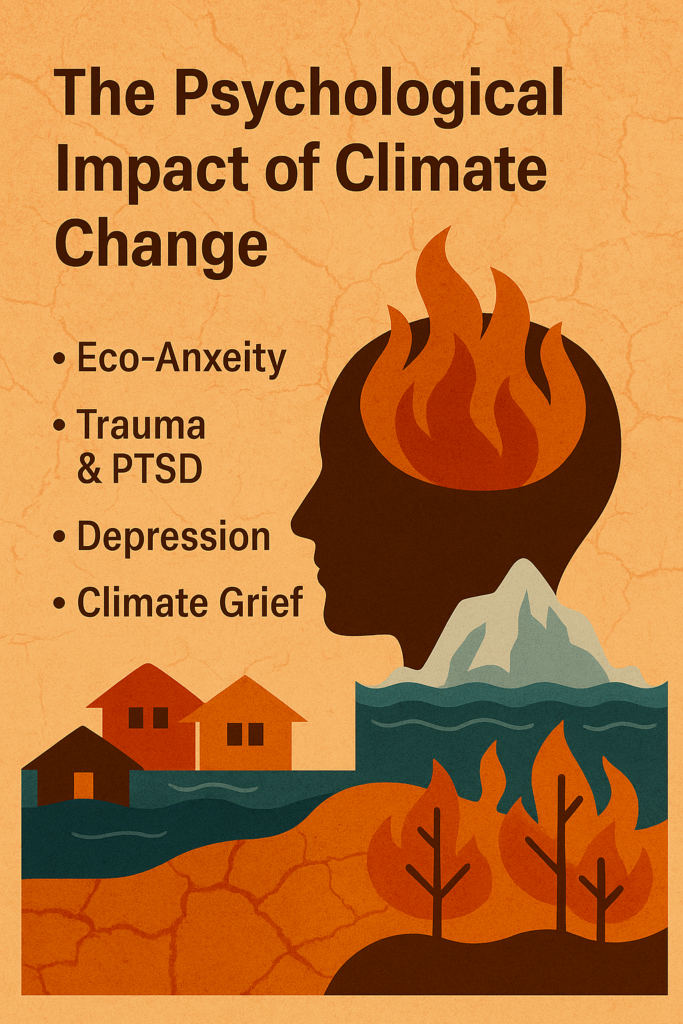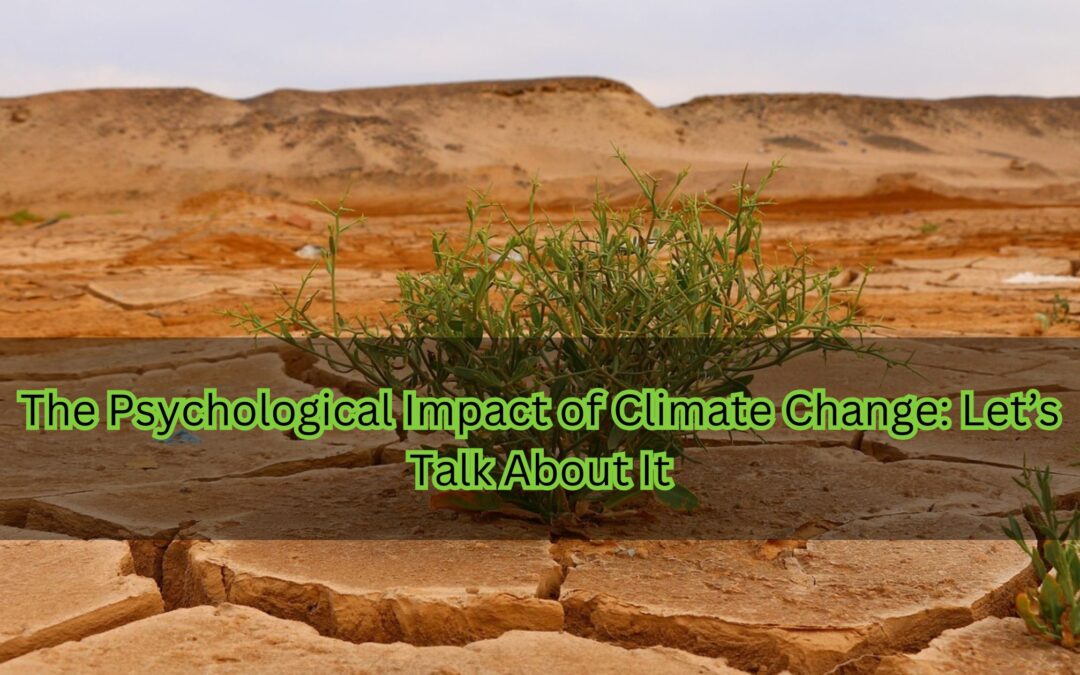When most people hear “climate change,” they think of rising temperatures, melting glaciers, or more floods and fires. But let me ask you something: how does it make you feel? If you’ve ever felt overwhelmed, anxious, or hopeless about the future of our planet, you’re not alone.
We need to talk about the psychological impact of climate change—because it’s real, and it’s growing.
How Climate Disasters Affect Mental Health
Think about the families who lost everything in wildfires in Australia or the devastating floods in Pakistan. These aren’t just news stories. These are people living with trauma, depression, and anxiety. Many are struggling with PTSD or grief long after the disasters are over.
Even if you’re not directly affected, hearing about these events every day can take a toll. There’s a name for that—eco-anxiety. It’s the chronic fear of environmental doom. And it’s hitting young people especially hard.
Psychologists now call it climate grief—a sense of mourning for the planet and fear that future generations may not have a safe world to live in.
🌍 Learn more about eco-anxiety and youth mental health from the American Psychological Association.
The Hidden Toll of Drought and Rural Climate Impacts
Now let’s talk about the countryside. Rural communities depend on nature—land, water, and weather. When a long-term drought hits, it destroys crops, kills livestock, and ruins lives.
Farmers face debt, isolation, and the heartbreak of watching their way of life disappear. This leads to higher rates of depression, substance abuse, and even suicide in some areas.
And indigenous communities? They face cultural trauma when sacred lands and traditional ways of life vanish. It’s more than environmental damage—it’s personal, spiritual, and generational.
💧 Check out this in-depth article by The Guardian on the mental health crisis linked to climate change.

Climate Change and Emotional Resilience: What Can We Do?
We don’t just need solar panels and electric cars. We need climate-resilient health systems that include mental health support.
Governments should:
- Fund therapy and mental health services as part of disaster relief.
- Train responders to support emotional recovery, not just physical survival.
- Educate communities about emotional first aid and support networks.
But institutions can’t do it alone.
We, as individuals and communities, can:
- Talk about our climate emotions openly.
- Join support groups or environmental networks.
- Focus on solutions and action, not just fear.
Finding Hope Through Action
Here’s the good news: taking action can actually improve your mental health.
If you’re feeling powerless, try something small:
- Plant a garden.
- Reduce waste.
- Join a local climate group.
- Educate others on sustainability.
People involved in community projects, regenerative farming, or climate activism often report feeling hopeful and connected again. The purpose is powerful.
🌱 Want a community of like-minded people? Join EAT Community to learn, connect, and act.
Let’s Make Mental Health Part of the Climate Conversation
In conclusion, the psychological impact of climate change is just as important as the physical one. You can’t build a resilient world without resilient minds.
Let’s support one another, stay informed, and take action.
Together, we can build a healthier planet—and a healthier emotional future.
✅ Take Action Now
Don’t just read about it—be part of the solution.
👉 Join the EAT Community to connect with people who care about mental health and climate change.
Together, we can make a difference—emotionally and ecologically.
🔍 References
- Forest Carbon Sequestration: A Natural Solution to Climate Change
- American Psychological Association. Mental health and our changing climate
- The Guardian. Mental health crisis and climate change
- Climate Psychiatry Alliance. Climate grief and eco-anxiety
- UNICEF. Youth and climate change mental health


Recent Comments